
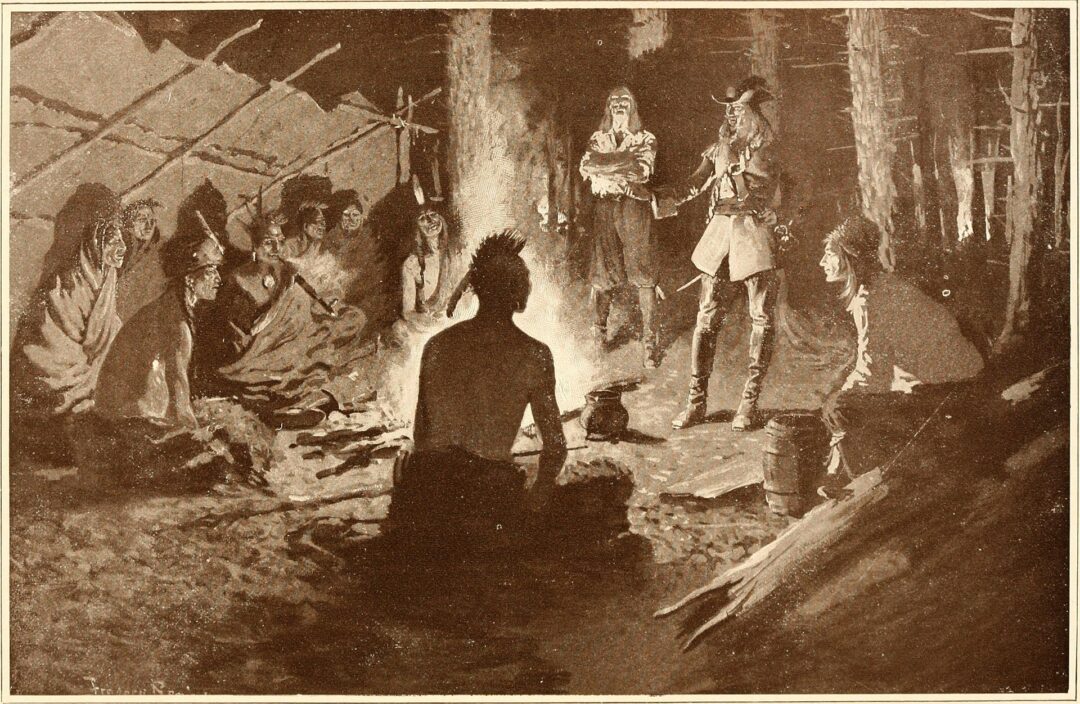
Germinating The Ancient Seeds Within – embarking on a journey towards an ethnoecologically rooted regeneratively guided Ethnogenesis
by Gavin Mounsey | Jun 4, 2024
In this essay I will be exploring the concept of uncovering, remembering, re-tracing and re-awakening the seeds of wisdom left by each and everyone of our indigenous ancestors and cultivating those seeds in order to produce the harvest of fruit that takes the form of a process of ethnogenesis that is accessible and open to all with the courage to tend the ancient seeds within.
I will be inviting you to embrace the truth that regardless of what skin color you have, or what flag you swear allegiance to, or what religion you subscribe to, deep in your ancient past, you had ancestors that lived in close relationship with the land, reciprocating her gifts, honoring all beings as animate and having a keen understanding of what plants and other beings they shared their homeland with. Those people are your indigenous ancestors. They had a relationship to place, one that involved sacred agreements to give back in reciprocity for the many gifts we receive from the more than human world. We too can begin to develop, nourish and cultivate our own relationship to the place where we live, to the land and the many learned beings we share the land with. That path is the path to becoming indigenous ourselves.
“For all of us, becoming indigenous to a place means living as if your children’s future mattered, to take care of the land as if our lives, both material and spiritual, depended on it.”
―Robin Wall Kimmerer Braiding Sweetgrass: Indigenous Wisdom, Scientific Knowledge and the Teachings of Plants
(For another perspective on what becoming indigenous to place means for those of us with a mixed genetic lineage, read this.)
A broad, working definition of Indigeneity is that it is a quality of a person’s and a group’s identity that links them to specific places with knowledge of and respect for the land and original ways.
Indigeneity is tied to land and place. The term ‘Indigenous’ recognizes this connection of being from and belonging to the land.
The word—from the Latin indigena, meaning “native” or “sprung from the land”—has been used in English since at least 1588, when a diplomat referred to Samoyed peoples in Siberia as “Indigenæ”, or people bred upon that very soil.
In a genetic sense, some of my most recently living indigenous ancestors were the Gaels of Scotland and Ireland. Their relationship and reverence for the land was imbued into the language they chose to create in the Ogham script (or “tree alphabet”). While I see that there is much wisdom to be gleaned from ‘saving seeds’ of wisdom from my own indigenous ancestors (knowledge and ways of seeing that are universally applicable and enriching regardless of where one currently lives) much of their customs, medicinal practices, language and other cultural aspects were intrinsically tied to and born of the specific land (and waters) that the Gaels called home. I do not live in Scotland, Ireland or the UK, so as I now strive to set down the roots of reciprocity with the land where I live (in what is now called Ontario, Canada) I also seek to (respectfully) gather the seeds of wisdom from the peoples who called this land home for millennia prior to the arrival of the Europeans. The First Nation people of what is now called Canada, developed a deep understanding of the land, ecology, animate spiritual presence and other characteristics of this land that I now live on and so they are (in many ways) better suited to offer placed based wisdom than my Druidic/Gaelic ancestors would be.
On my path to develop a strong and reciprocal (symbiotic) relationship with the place that I live I first and foremost strive to learn from my non-human elders in the kingdoms and queendoms of photosynthetic beings, fungal beings, four legged, winged, finned and scaled beings who are also indigenous to this land that I now call home. The ancient rooted beings, the winged soaring ones and the four legged were (and are) the wise and revered teachers and kin of those peoples who called this land home long before I arrived here and thus I seek to learn from those learned elder beings in my own way on my path to become an ancestor that chose to set down deep roots in the place where I lived and become an ancestor worth descending from.
By growing your roots, you’ll be resourced to feel more at peace and connected to the place you live and also to show up for yourself in a much more present way. And, you’ll gain strength to show up for ecological and social change in ways that lead to greater transformation and bring joy to your heart.
To support this process, I invite you to do the following—
- Grab a piece of paper and a pen.
- Write down the following questions— What would it mean for me to work from a sense of deep home? What would it mean for me to take care of the land and my community as if my life depended on it?
- Then, put on a timer for five minutes, and take this entire time (and more, if you want it!) to free-write on the question.
As I contemplate these question, I (as many others likely do) realize that rather than going far, I want to go deep.
I want to weave a strong net of community, to know my neighbors better—the people, four-leggeds, and plants, to create change from home.
In a world where most people no longer know the names of the plants and trees that also call the place home where they live and yet they know the names of a thousand corporations, they feel at home in a shopping mall and yet feel surrounded by scary strangers when they are in a forest.
Getting to know the names of the non-human beings in the place we call home roots us into reverence and respect, confidence and empowerment. Getting to know our neighbors (human and non-human) allows us to begin to develop a place based reciprocal relationship with the communities we are a part of (human and non-human communities).
My ancestors, had a deep reverence for the rooted beings especially (as is exemplified in the Ogham script) so I currently endeavor to work closely with rooted beings that are both indigenous to the place I now call home and those trees that those humans who are original inhabitants of this land received gifts from in the form of food and medicine. Three of the species I have began working with that fit that description are Tulip Trees (Liriodendron tulipifera), Paw Paw (Asimina triloba) trees and Birch trees of various types.
For these reasons, and as someone with indigenous heritage rooted in the Gaelic culture, I respect the wisdom and ways of seeing that were gathered and applied by the people who called this land home for millennia before the Europeans arrived here.
Thus, I also strive to connect with people who have indigenous bloodlines (and more specifically those who are also keeping their ancestor’s knowledge alive) in this land on Turtle Island so that I can begin my own path to developing a relationship to this place in a way that embodies reverence and can one day allow me to become worthy of calling this beautiful land home, while honoring the 7th generation principle so that when future generations look back at my life they will see that I strove to become a human being worth descending from.
People like Lyla June and Marten Pritchel offer helpful sign posts for those seeking to develop a long term reciprocal and reverential relationship with the land on which one currently lives as they are people that have not only indigenous bloodlines, but both living indigenous relatives, conscious awareness of practical applications of traditional indigenous knowledge, and also European bloodlines with a conscious awareness of the ancient indigeneity of those aspects of their being and ancient ancestors (that are all to often forgotten or overlooked by many people with predominantly or solely European genetic bloodlines).
All throughout history Statist empires sought to steal the land from and impose their will upon people who had chosen to live in close connection to the land and the forest by assigning them with the dehumanizing, condescending and derisive label of being “uncivilized”/”savage”.
As Dr. Lyla June astutely points out, this was/is not only true of how the statists sought to annihilate, assimilate and pillage the cultures and lands of the diverse peoples of Turtle Island. It was also true (and is still also true) for how statist regimes have sought (and continue to seek) to do the same to other people who lived (and live) in close relationship with the living Earth all over the world.
This was true of my blood ancestors in the Druidic (and then eventually Celtic) nations and it is true now in how the Canadian government and corporations are imposing their will upon those people who live in areas where profitable minerals exist in the ground that they want to get their hands on.
The time has come for us to ask ourselves the question, Have we been tricked by “Civilization”? and where do our true allegiances lie?
Do we swear our allegiance to a flag/nation state/”civilization” or do we swear our allegiance to the Living Earth?
I will now share some words of wisdom and astute observations that my love shared recently, as I feel what she describes further elucidates several of the ways that we have been brainwashed by “civilization”:
Do you remember a time before? A time before the hidden war? A time before the cloaked war against humanity? So many believe life is continuing as it was, unaware that the restrictive lines are closing in, choking their lives into constant submission. The dwindling freedoms being taken from us, even as we do not remember the difference in the now to the before.
It is left to those of us who were here in the before to hold tight to the rememberings… to encourage the others to know the truth and not forget. It is to us to plant the seeds of truth on the path that will take us all to freedom. That freedom is not only a future destination but the key to the journey that takes us through this chaos. It is the only way through this labyrinth concocted by those who seek to keep us distracted.
The beacon is shining but has been clouded over with the mundane and unimportant distractions we are bombarded with daily. Much like many do not notice the difference in the skies because they no longer look up, this war that has been waged and is moving forward because we are not taking notice. As a result those around us are falling without our cognizance. How can we be so unaware? Simply put, we are addicted to the drugs of the distractions with which we fill our days.
Those that wage this war, took the time to understand the patterns of the human psyche and slowly set the plan in motion over decades. Starting slowly with a simple distraction that could spread their propaganda they gave us the radio. Then they picked up speed and flooded our minds with the images and sounds brought by television. Unlike movies which we had to leave our homes to see, the television brought in the new war tactics… bending our will and creating in our trusting hearts a willingness to sit passively and be fed propaganda by watching the nightly “news” and wasting time watching a screen that has divided families and molded many young minds for over 50 years. But passively consuming what they were feeding us was not enough of a distraction so they jumped into high speed with internet. By 2006 the doors to social media opened wide and like a dam with a hole in it, was destined to flood our thoughts more and more. First we sat at computers. Then we used our smart phones and now it is everywhere with us on our watches. We depend on these devices to watch our homes, “keep us in-touch” as though with our heads down they really separate us. We trust them so much that we connect all our ‘smart devices” that we may never be without these distractions that are truly our new masters.
Truth is that these devices are really a plan, with one particular aim to keep us distracted thereby allowing those that seek to control this war (that has been waged to enslave humanity) to white wash our memories and change the reality we once knew into whatever they want us to believe. And the saddest part is that much of humanity will willingly follow along doing their bidding joyfully, as long as they can stay “connected”.
The only way to free ourselves from this captivity is to start living in the 3D world as we did in the before. Step away more from the distractions, be present in the moment. Speak to others in person, spend more and more time in activities that require you to go somewhere and use cash when you make any purchase instead of a bank or credit card that tells who you are, where you are, what you are purchasing not to mention links you to your bank. Take off the watch, leave your phone at home and spend the night with those you live with rather than spending your night on a screen. And for the sake of all, including yourself, look up and notice how much the sky has changed… how much the world has changed directions. And ask yourself is this the world you want for yourself… for your children… for those yet to walk this planet? Are you willing to sell future generations out for the instant gratifications that your watch, phone and AI can bring you now?
– “A War Without A Fight: A well planned war inducing willing surrender” by Johrey M.
And now I will share another excerpt from Marten Pritchel’s book about keeping the (cultural, spiritual and physical) seeds alive:
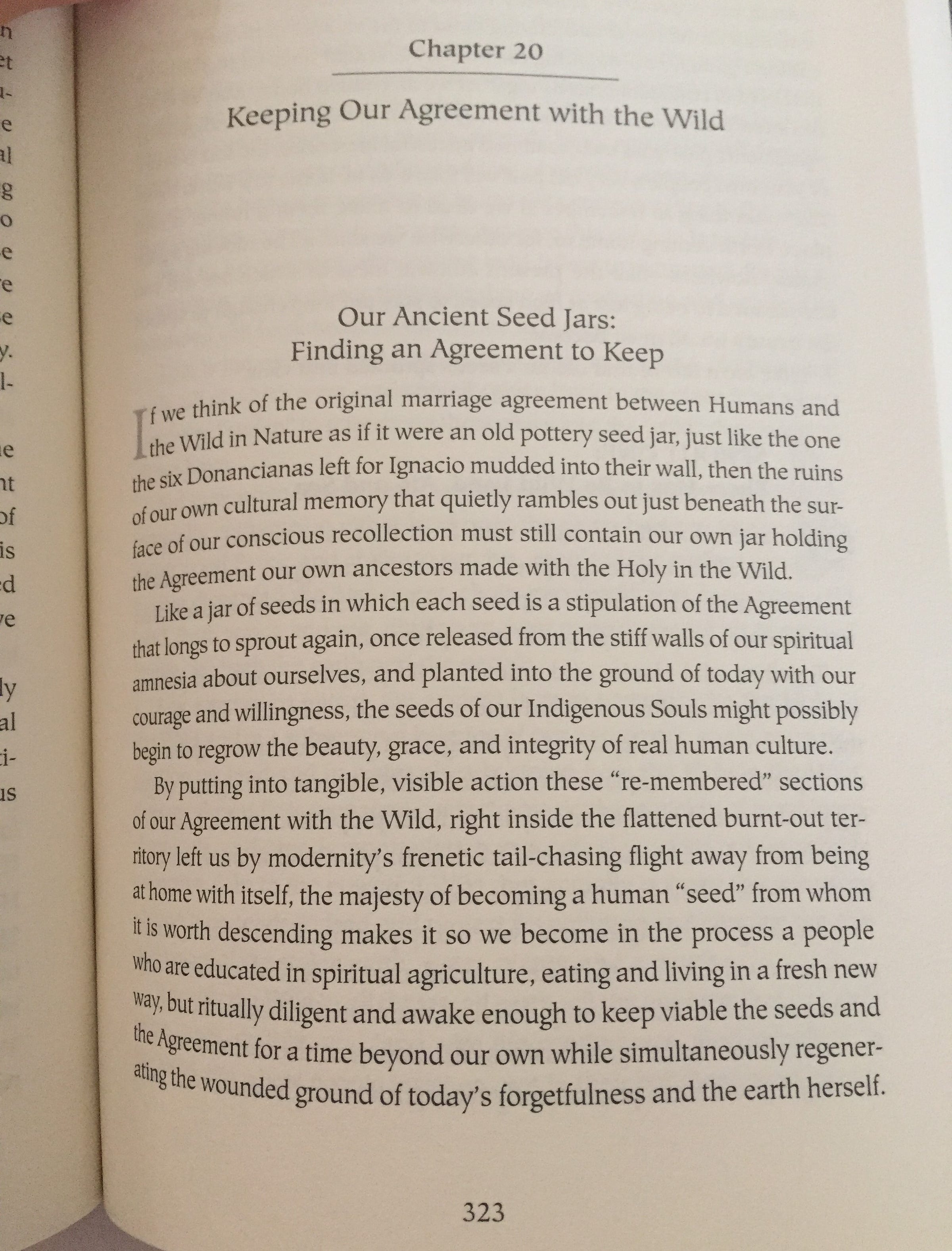
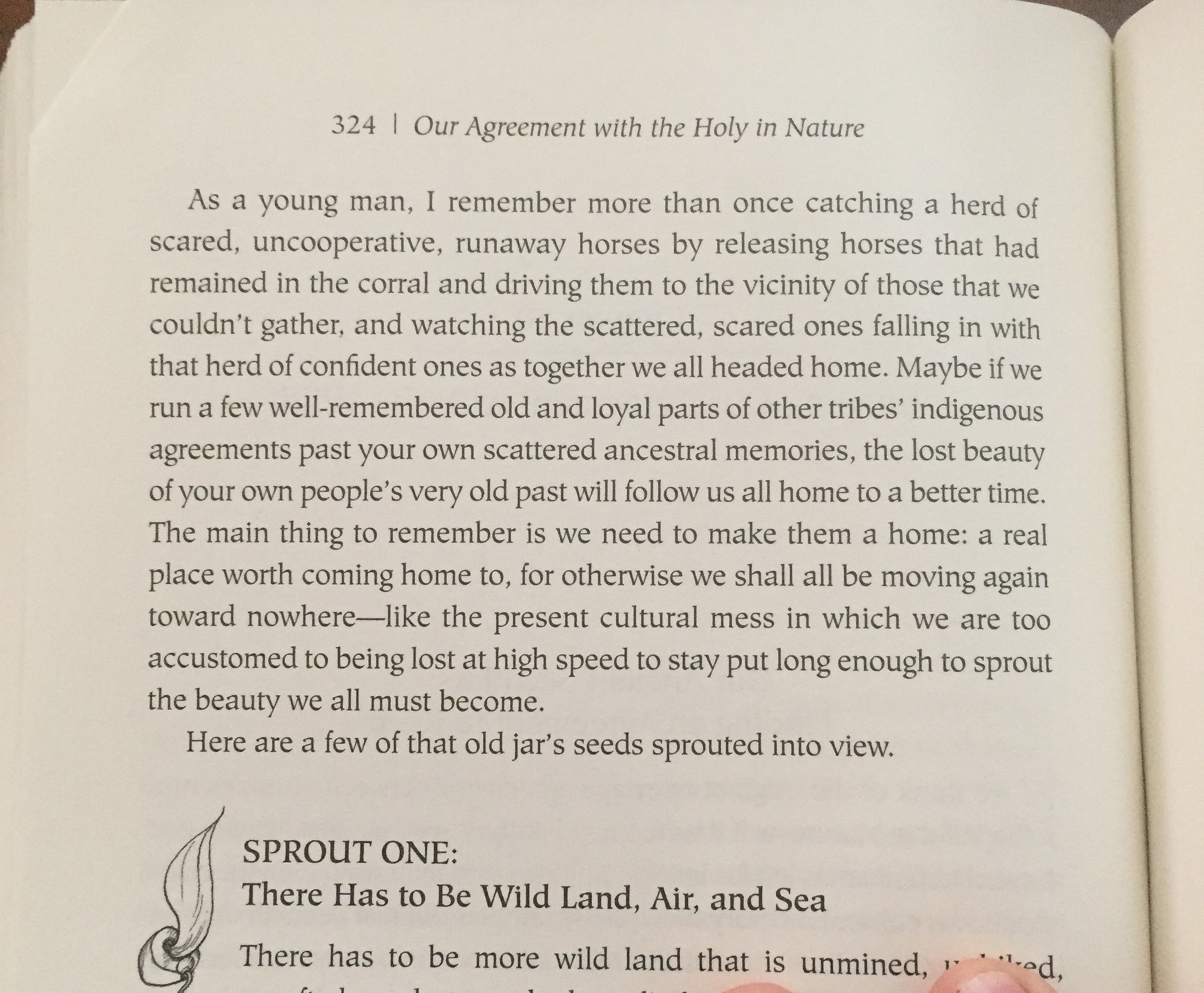
I will be quoting Marten Pritchel extensively below (especially his powerful book The Unlikely Peace at Cuchumaquic: The Parallel Lives of People as Plants: Keeping the Seeds Alive two pics from that book shown above) as I feel that he is one of those rare individuals that (having lived many years walking the path of people that are indigenous to place, for him, the Mayans of what is now called Guatemala and the indigenous peoples of what is now called New Mexico) and now also walking in the world of modernity, he is in the unique position to be able to see viable pathways to ‘save seed’ from the wisdom of our shared indigenous past and cultivate them in the fertile soils of courageous hearts and minds in the present.
Now, to further provide a vivid delineation between what Marten Pritchel describes as “the monster of modernity” (aka modern industrial civilization, Statism and the corporatocracy that dominates both of those systems) and what Robin Wall Kimmerer describes as “living as if your children’s future mattered, to take care of the land as if our lives, both material and spiritual, depended on it.” (aka being “indigenous” to place), I would like to firstly pose the following question:
How is it that in places on Earth with the most aggressive agricultural activity there are communities with a high number of people going hungry?

Put simply, Industrial agriculture is a food system that creates hunger by design.
This is not an isolated example of how ridiculous, degenerative and antithetical to life our modern profit driven culture is, it is but one example of many.
As James Corbett described in detail in his excellent series on The Future Of Food, food is often used as a weapon by plutocrats and their pawns in national governments.
However, as he also pointed out, when we take decisive action to change how we access our food and how it is cultivated we can turn the tables to use food as a means to engage in effective resistance against tyranny ensuring that the future of food is ours to decide.
There is no savior politician or rebel leader that can do this work for you as the most powerful leverage point we have in determining the future of food is through using our own two hands to cultivate food in the living Earth in our local communities.
We live in a time when idiotic, exploitative and ecologically illiterate GMO agriculture practices have created a situation where here in North America we have simultaneous epidemics of obesity and malnutrition.
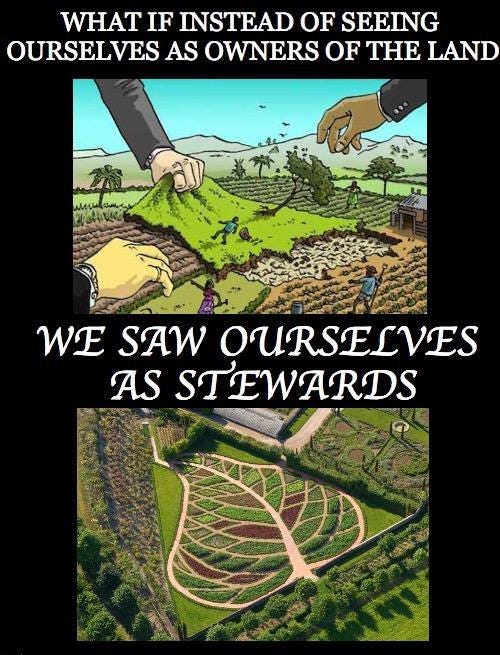
We live in a time when the regions that have the most plowing and monoculture farming practices also import the highest amounts of food to feed their populations. For instance, as illustrated in the pic above, Kansas is 95% agriculture by acreage and imports 95% of its food.
The system of agriculture we have been conditioned to see as “normal” is insane, anti-human, ecologically degenerative, irrational, hubristic and nothing more than a means for profiteering and using food as a weapon (at the cost of human health and the integrity of the biosphere).
At the time when people first began arriving from Europe and interacting with the people from Turtle Island some of the people who were indigenous to Turtle Island were able to detect other aspects of statist “civilization” that were (and still are) insane, degenerative and socially primitive.
In the late 1600s, European colonists in North America became engaged in philosophical discussions with the indigenous peoples of that land. Some of the indigenous people and the colonists learned to speak one another’s languages fluently. Graeber and Wengrow explain that the native North Americans had strong philosophical traditions and skilled orators who challenged European colonial officials in debates.
In some cases, indigenous intellectuals travelled to Europe in order to study and understand feudal society. One such person was a Huron-Wendat leader named Kondiaronk, also known as Le Rat, who seems to have impressed everyone he ever met with his great brilliance.
Whitworth continues:
“In New France, Wendat leader Kandiaronk raised scathing critiques of European social customs and values, particularly criticizing monarchical rule, social hierarchies, emphasis on the accumulation of wealth and materialism, and punitive justice systems. These descriptions then made their way back to Europe, where they were widely distributed among the intellectual class and, Graeber and Wengrow argue, became the inspiration for much Enlightenment thought.
One of the major cultural differences the Europeans and indigenous people found they had was the notion of equality and its connection to freedom. Indigenous ideas about equality and freedom directly conflicted with the European notions of social status and a natural hierarchy.
Graeber and Wengrow say that Europe before the 1700s lacked a notion of social equality. They believed that some people are naturally higher or lower in status and authority than others. They lived in monarchies and they derived that system from biblical notions of nobility and authority. In other words, “God” (aka the church) decided one’s station in life.
By contrast, many of the Native American cultures had no notion that anyone could be born higher or lower in status than anyone else or that anyone could have authority over anyone else. In such cultures, status might be gained with age or according to merit. But the notion that people are inherently unequal or that any status could give someone the right to dominate someone else would not have existed in this kind of cultural worldview.”
After visiting France and then returning to the Eastern Woodlands of Turtle Island Kondiaronk (the Wendat chief described above) offers this distillation of the indigenous critique:
“I’ve spent six years thinking about the state of European society and I still can’t think of a single one of your ways that isn’t inhumane, and I sincerely believe that it can only be because you stick to your distinctions of ‘mine’ and ‘yours’.
I affirm that what you call money is the devil of devils; the tyrant of the French, the source of all evil; the scourge of souls and the slaughterhouse of the living. To imagine that one can live in the land of money and preserve one’s soul is like imagining that one can preserve one’s life at the bottom of a lake. Money is the father of luxury, lasciviousness, intrigue, deceit, lies, betrayal, insincerity, all the worst behaviors in the world. Fathers sell their children, husbands their wives, wives betray their husbands, brothers kill each other, friends are false, and all for money. In light of all this, tell me that we Wendat are not right to refuse to touch or even look at money?”
Kandiaronk’s view was that the greed, poverty, and crime found in French (European) society arise from lust for money. According to him, by refusing to deal with money, the Wendat were able to live in freedom and equality.
Kandiaronk:
“Do you seriously imagine, he says, that I would be happy to live like one of the inhabitants of Paris, to take two hours every morning just to put on my shirt and make-up, to bow and scrape before every obnoxious galoot I meet on the street who happened to have been born with an inheritance? Do you really imagine I could carry a purse full of coins and not immediately hand them over to people who are hungry; that I would carry a sword but not immediately draw it on the first band of thugs I see rounding up the destitute to press them into naval service?”
While I may not place as strong an emphasis on money being the source of all evil as Kandiaronk appeared to have been, I can see much truth in what he was trying to say about the degenerative influences of a culture driven by greed, materialism, authoritarianism, anthropocentrism and imperialism in general.
The European invaders were guiding their actions by the compass of greed and they saw the living Earth as nothing more than resources waiting to be exploited and extracted and the wilderness as the enemy waiting to be dominated and tamed (in the name of “progress”, leaving engineered scarcity, starvation, inequality and diminished biodiversity in their wake).
As I highlighted in my recent post on lawn nazis, many of our front yards are a reflection of the “war on nature” thinking I just described above with regards to industrial agriculture methods. We waste land (spending money we don’t have) attempting to force a monoculture of imported grass onto the land while buying the products of industrial agriculture (funding ecological destruction and degrading our health).
It is time to stop our futile efforts attempting to wage war against the ecosystems that provide what we need to live. It is time to instead forge alliances with the more than human world.
One of the most powerful leverage points each of us can engage with in this sacred task is right in our yards, community gardens and local parks.
Since we live in a world where the dominant western industrial culture (government subsidized soil destroying GMO ag, synthetic creepy lab grown “food”, people trying to encourage you to eat ze bugs and corral you into a Digital ID/CBDC gulag in the grocery stores) is either headed for a sheer cliff and/or having no choice but to eat the lab grown / transgenic carcinogenic garbage they are peddling in the big box stores the imperative for taking action to diverge from that culture and definitively choose a different pathway for how we cultivate and access our food is clearer than ever.
So if the current dominant culture that we were born into is defined as exploitative, hyper-centralized, ecologically illiterate/destructive, anthropocentric, materialistic, superficial, and toxic the question we need to ask ourselves is, do I want to continue defining myself by, giving my energy to, anchoring myself to and lending momentum that culture or is it time to choose a different path?
What if instead of making choices that feed into and perpetuate a culture that is exploitative, hyper-centralized, superficial, anthropocentric, ecologically destructive, materialistic and toxic we took action as individuals to plant the seeds for a counter-culture that is generous, kind, decentralized, honest, courageous/heart centered, ecologically literate/reciprocal, spiritually grounded, animistic/humble and healing?
What if we each take action to move in the direction of systematic refusal to the aspects of our dominant western culture which I listed above to instead define ourselves as part of a permanent culture that has yet to be seen on the face of the Earth?
Studies related to paleoethnobotany have offered us insights into how ancient cultures defined themselves in lasting ways through how they interacted with the ecosystems that supported them. The story of the essence of their cultures were written into the living soils, the depth and breadth of which tells the tale of wise and humble people’s who lived for thousands of seasons cultivating and gathering food in a way that was reciprocal, regenerative and aligned with ecological literacy. Those peoples over time became defined regionally and genetically by others, but I would contend that the most important aspect of their culture was not where they lived or what color their skin was, but rather it was how they lived and how they gave back to the life that nourished them.
Or as Marten Pritchel puts it
“Everything in Nature ran according to its own nature; the running of grass was in its growing, the running of rivers their flowing, granite bubbled up, cooled, compressed and crumbled, birds lived, flew, sang and died, everything did what it needed to do, each simultaneously running its own race, each by living according to its own nature together, never leaving any other part of the universe behind. The world’s Holy things raced constantly together, not to win anything over the next, but to keep the entire surging diverse motion of the living world from grinding to a halt, which is why there is no end to that race; no finish line. That would be oblivion to all.
For the Indigenous Souls of all people who can still remember how to be real cultures, life is a race to be elegantly run, not a race to be competitively won. It cannot be won; it is the gift of the world’s diverse beautiful motion that must be maintained. Because human life has been give the gift of our elegant motion, whether we limp, roll, crawl, stroll, or fly, it is an obligation to engender that elegance of motion in our daily lives in service of maintaining life by moving and living as beautifully as we can. All else has, to me, the familiar taste of that domineering warlike harshness that daily tries to cover its tracks in order to camouflage the deep ruts of some old, sick, grinding, ungainly need to flee away from the elegance of our original Indigenous human souls. Our attempt to avariciously conquer or win a place where there are no problems, whether it be Heaven or a “New Democracy,” never mind if it is spiritually ugly and immorally “won” and taken from someone who is already there, has made a citifying world of people who, unconscious of it, have become our own ogreish problem to ourselves, our future, and the world. This is a problem that we cannot continue to attempt to competitively outrun by more and more effectively designed technological approaches to speed away from the past, for the specter of our own earth-wasting reality runs grinning competitively right alongside us. By developing even more effective and entertaining methods of escape that only burn up the earth, the air, animals, plants, and the deeper substance of what it should mean to be human, by competing to get ahead, we have created a brakeless competition that has outrun our innate beauty and marked out a very definite and imminent “finish” line.
Living in and on a sphere, we cannot really outrun ourselves anyway. Therefore, I say, the entire devastating and hideous state of the world and its constant wounding and wrecking of the wild, beautiful, natural, viable and small, only to keep alive an untenable cultural proceedance is truly a spiritual sickness, one that will not be cured by the efficient use of the same thinking that maintains the sickness. Nor can this overly expensive, highly funded illness be symptomatically kept at bay any longer by yet more political, environmental, or social programs.
We must as individuals and communities take the time necessary to learn how to indigenously remember what a sane, original existence for a viable people might look like.
Though there are marvellous things and amazing people doing them, both seen and unseen, these do not resemble in any way the general trend of what is going on now.
To begin remembering our Indigenous belonging on the Earth back to life we must metabolize as individuals the grief of recognition of our lost directions, digest it into a valuable spiritual compost that allows us to learn to stay put without outrunning our strange past, and get small, unarmed, brave, and beautiful.
By trying to feed the Holy in Nature the fruit of beauty from the tree of memory of our Indigenous Souls, grown in the composted failures of our past need to conquer, watered by the tears of cultural grief, we might become ancestors worth descending from and possibly grow a place of hope for a time beyond our own.”
(from: The Unlikely Peace at Cuchumaquic: The Parallel Lives of People as Plants: Keeping the Seeds Alive)
Written accounts, stories passed down through generations and even mounds or stone structures tell us relatively little about what defined a culture and what we can learn from them when compared to studying the impact those cultures had on the living soil. The soil is a living record of thousands of seasons of growth, decomposition, death, new life and through examining the soil one can discern what type of people lived in that place.
When we study the soil in conjunction with the rise and fall how a culture interacts with the ecosystems that they depend on to survive and how they either give back to and build up the soil or deplete and erode it, is a the more fundamental variable in determining the longevity of a culture and civilization.
The soils in the dominant European epicenters of imperialistic “civilizations” tell us the story of ecologically illiterate and/or greedy short sighted ways of living and interacting with the ecosystems they depended on to survive. That Roman pattern of extractive monoculture food cultivation was brought with the Colonial Christians everywhere they went in the world, leaving a trail of deforestation, loss in soil mass, depth and fertility and ecological devastation in its wake.
For some historical and scientific background on this issue, I suggest reading: “Dirt: The Erosion of Civilizations” by David Montgomery
https://www.pdfdrive.com/dirt-the-erosion-of-civilizations-e185700369.html
https://www.ucpress.edu/book/9780520272903/dirt
The anthropogenic Terra Preta of the Amazon and the deep dark soils of the Great Plains of Turtle Island (aka “north america”) however tell a different story about how humans interacted with the ecosystems they depended on to survive.
As Charles C. Mann wrote, in a piece that drastically changed the perception about native populations in the New World before contact, contrary to the popular isolated hunter-gatherer notions of natives, the New World was a highly advanced civilization that manipulated their environment on a large scale. He believed that humans were a keystone species—that is an animal that plays a crucial role in the functioning of an eco-system.
When we look at the starkly contrasted differences in the stories told in the soils that were impacted by the cultures described above what we are really doing is looking at and defining those cultures through the lens of paleoethnobotany and ethnoecology. Those two lenses of viewing and defining cultures of the past and present also offer us an opportunity to intentionally engage in the process of ethnogenesis and draw a trail map towards a regenerative future for our human family.
In this time when we are able to connect with each other over vast distances, sharing knowledge, ideas, seeds, visions and stories I would like to invite you to realize that we are capable of defining ourselves as part of an emergent culture that is decentralized geographically and genetically diverse yet unified in our shared recognition of the sacredness of all life, and our shared determination to give back to the Living Earth that gives so much to us and leave this world a little bit more beautiful than when we got here for future generations. We can plant the seeds for that culture in our gardens, we can tend the seeds for that culture in our quiet moments to nurture that new culture to take root inside us and align our energy with an emergent culture that offers its momentum in service of life. That culture can connect millions in spirit and merge our collective physical actions taken to heal little patches of Earth in our local communities into a land healing process which will make our Great Mother grateful for her human children again.
The process of deliberate, direct planning and building out a separate cultural identity is known as Ethnogenesis.
As I said to someone who was speculating about whether or not an anarchist revolution took place at some point in Mayan history (resulting in a sort of ethnogenesis) I do not know if the Mayans were anarchists or not, but here is some information on something I do know about their culture which I would suggest is worth consciously integrating into our modern day process of Ethnogenesis.
Some people get very excited about Mayan pyramids saying that those structures show how “advanced” that culture was. I would contend that a man made food forest that persists for millennia feeding and providing a home for myriad beings, fostering life and beauty to unfold into ever higher levels of complexity and symbiosis is a far more impressive accomplishment than piling up a bunch of stones (as impressive as the stone structure may be). The same can be said for big mounds or stone monuments. Ecological literacy and botanical awareness is far more complex and practically applicable in our day to day lives than monument building skills.
Ethnogenesis refers to efforts to create counter-cultures which are permanent.
Ethnogenesis driven by an ethnoecological imperative of reciprocity is the process of creating an emergent regenerative culture.
“Active ethnogenesis is deliberate, direct planning and engineering of a separate identity. This is a controversial topic, because of the difficulty involved in creating a new ethnic identity. However, it is clear that active ethnogenesis may augment passive ethnogenesis. Active ethnogenesis is usually inspired by emergent political issues” (source)
“…[W]hat we tend to think of as cultures are actually patterns of systematic refusal which emerged in response to political conditions deemed unacceptable to some people within a given society. Those people then separate themselves in some way from that society, becoming culturally distinct in the process.”
ethnogenesis: the emergence of a subculture or counterculture which, if able to continue on its line of flight (or détournement ), would become a different culture entirely (New Travellers and, historically, Irish Travellers are good examples).
The emergence of new cultures through ethnogenesis is well-documented, and often stems from flight from state power (Scott), a process which begins with a choice to differ from the majority of an existing group. (source)
When we collect, preserve, cultivate and share heirloom seeds (while simultaneously feeding ourselves, growing medicine, providing habitat, nectar for pollinators and biomass for building soil) what we are really doing is engaging in a (non-genetically, non-religious, non-nationalistically and non-geographically defined) form of Ethnogenesis, creating an emergent culture that is primarily defined by its Ethnoecological attributes.
When we recognize, give our attention and reverence to, and interact with species of trees and plants that bind our present with our cultural past and our cultural islands to our family of humanity, we begin to engage in ethnogenesis in a way that connects our hearts, minds and conscious awareness to both the wisdom of our ancient indigenous ancestors (and people from all over the planet that may look very differently outwardly, yet at their core, share the same innate God given spark and ancient cultural connection to the living world).
I touched on one such example of a species that helped to define, enrich and connect cultures from all over this world in my article on Birch Trees.
The birch tree is a sacred reminder of a time before arbitrary lines were drawn in the sand by statists for greed and ego back to an era when many of our ancient ancestors knew the birch tree and had a reciprocal relationship with her. Long before people were swearing allegiance to kings, queens and flags they were swearing allegiance to the living Earth and recognizing our ancient kin (such as the lady of the woods) and the many gifts she shares with us.
My indigenous ancestors (the Gaels) referred to this being as Beithe and they deemed her worthy of being recognized in the first letter in the Ogham script (the Celtic Tree Alphabet). More on this later in the article.
These slender and graceful trees appear so delicate, however, they are remarkably strong. This beautiful tree has many associations with the Sacred Feminine. The English philosopher and poet, Samuel Taylor Coleridge, who co-founded the Romantic Movement speaks of Birch as the ‘Lady of the Woods’ for its remarkable lightness, grace, and elegance, and the fragrant odor it has after rain. In Celtic mythology, Birch trees are called the “White Lady of the Forest,” and represented femininity, grace, purity, family, protection, healing and new life.
Birch is also found in the mythology of Turtle Islanders, Norse, Russian, and Siberian cultures. All of the regions where you find Birch trees, there are stories and legends surrounding it.
If your ancestors hail from the northern hemisphere birch offers you a sort of universal language to perceive the common ground you share with the ancestors of those now residing in nation states far and wide. This tree offers you a glimpse into your own indigeneity and your ancestors relationship to place. Yes all of us have an indigenous past connected to our blood and our soul. For some of us, that indigeneity is buried under multiple millennia of bloodshed, oppression, re-writing of history and statist propaganda. Though it may be buried deep and many may have sought to erase that part of your heritage from the stories of modern cultures, this part of you exists nevertheless. This part of your ancient heritage when you ancestors lived close to the land and the forest, recognizing more than human beings as deserving of our respect as conscious beings.
After you read the article below and learn about all the beauty , blessings and the many gifts offered to us by the birch tree I invite you to take a moment next time you see one to touch her bark, as you look upon her with gratitude and reverence for all that she shares with the world you will be choosing to see the world through the eyes of your ancient ancestors.
Through seeing the birch as those who’s blood flows in your veins now did millennia ago you begin the unlearn the lies, self important delusions and separation mentality that is inherent in modern civilization. In that act to see the sacred birch tree with the understanding and reverence of those who came before you and walked the earth with respect eons ago, you are building a tangible bridge that connects you to your honoured elders and ancestors and a bridge that also directs you towards a more Regenerative, humble and hopeful future.
Such are the blessings we are given when we learn to see the living earth and our rooted elder kin as the ancients did, as wise teachers, protectors, healers, sources of inspiration, regeneration and renewal.
When we learn to perceive and interact with our rooted kin (such as the birch tree) as our ancestors did we shatter the modern illusion of separation that nation states attempt to impose on us and begin to speak a universal language that connects us all as equals.
“Just like Indigenous thought the world over, which having no priority for human success, knows that humans are here to give the juice of their unique beauty and grief to cause the Holy in Nature to succeed; what we do might fail, but magnificently, for it would never fail miserably because in this scared industrial age failing magnificently in any attempt to feed the Holy and keep large rare thoughts alive creates culture in the process and reinstates the nobility of the natural soul– a soul so beautiful it is like a wild horse, something worth feeding and trying to ride, even if in the end he, like what we learn, just runs off thundering back to the pastures of the Divine, healthier than when we started.”
This quote is from the book, Long Life, Honey in the Heart, by Martin Prechtel
Preserving the seeds of holistic linguistic expression , feeding the Holy through living eloquently (as “washing the dishes like a baby Buddha” or living life as each moment is a piece of art) and becoming fertile ground (in our hearts and minds ) so that such cultural seeds, spiritual seeds and ways of being can set down Roots, flower and self-sow into other hearts and minds within the reach of the seed pods released on the wind through our words, art, purposeful eloquence floating, allowing those seeds to be lifted up, effortlessly, levitating and moving gracefully as though they have a mind of their own, like a milkweed seed in late winter… dancing her way to carry out her sacred work, coming the gently rest upon fertile soils/souls.
Speak with others in the same way you speak and think when you are saying a prayer and speak to God in earnest for the spark that gives all things life and a conscious spirit is Holy, and so the Holy exists in all things and beings.
When you tend the garden within and then feel a truth and a knowing in your heart and soul, gather and share the precious seeds of that truth and knowing for they are desperately needed in this modern world of spiritual malnutrition.
When you tend to those seeds from your soul treat them like a freshly germinated acorn, tender and small, humble and without leaves, yet capable of becoming a wondrous, immense, inspiring, and nourishing epicentre for an entire community, holding the fabric of the community together with her roots, creating a microclimate where other beings and their seeds can flourish and persisting for centuries while feeding the souls of myriad beings and creating ten million acorns capable of setting down roots in the fertile soils of the hearts and minds of any who venture into the wilderness of their own souls far enough to be able to able to walk on the soft soils in the fecundity and under the shade of her magnificent ancient canopy.
In order to further elucidate on the concepts I am attempting to express here I will now share another excerpt from The Unlikely Peace at Cuchumaquic: The Parallel Lives of People as Plants: Keeping the Seeds Alive by Martín Prechtel.
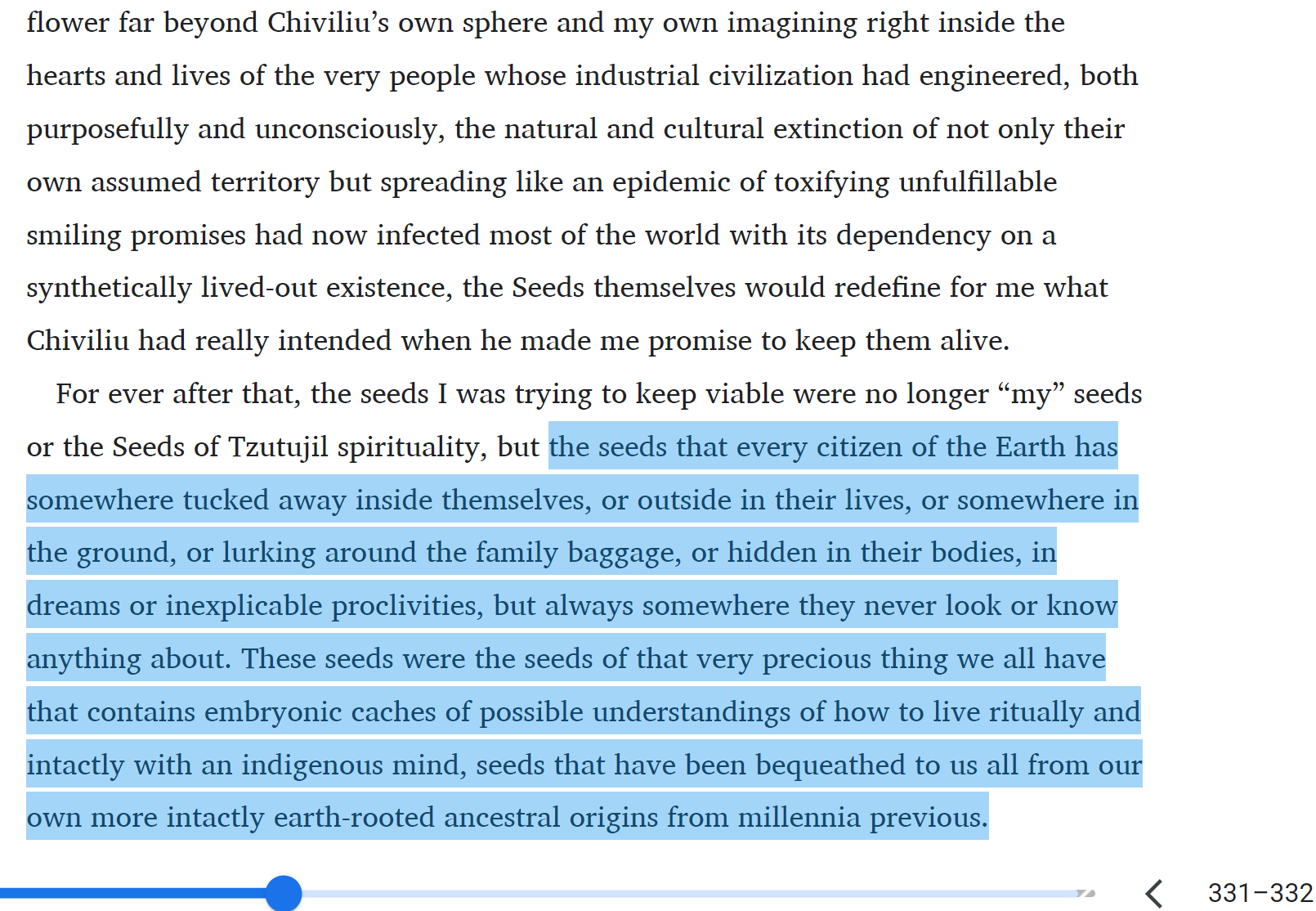
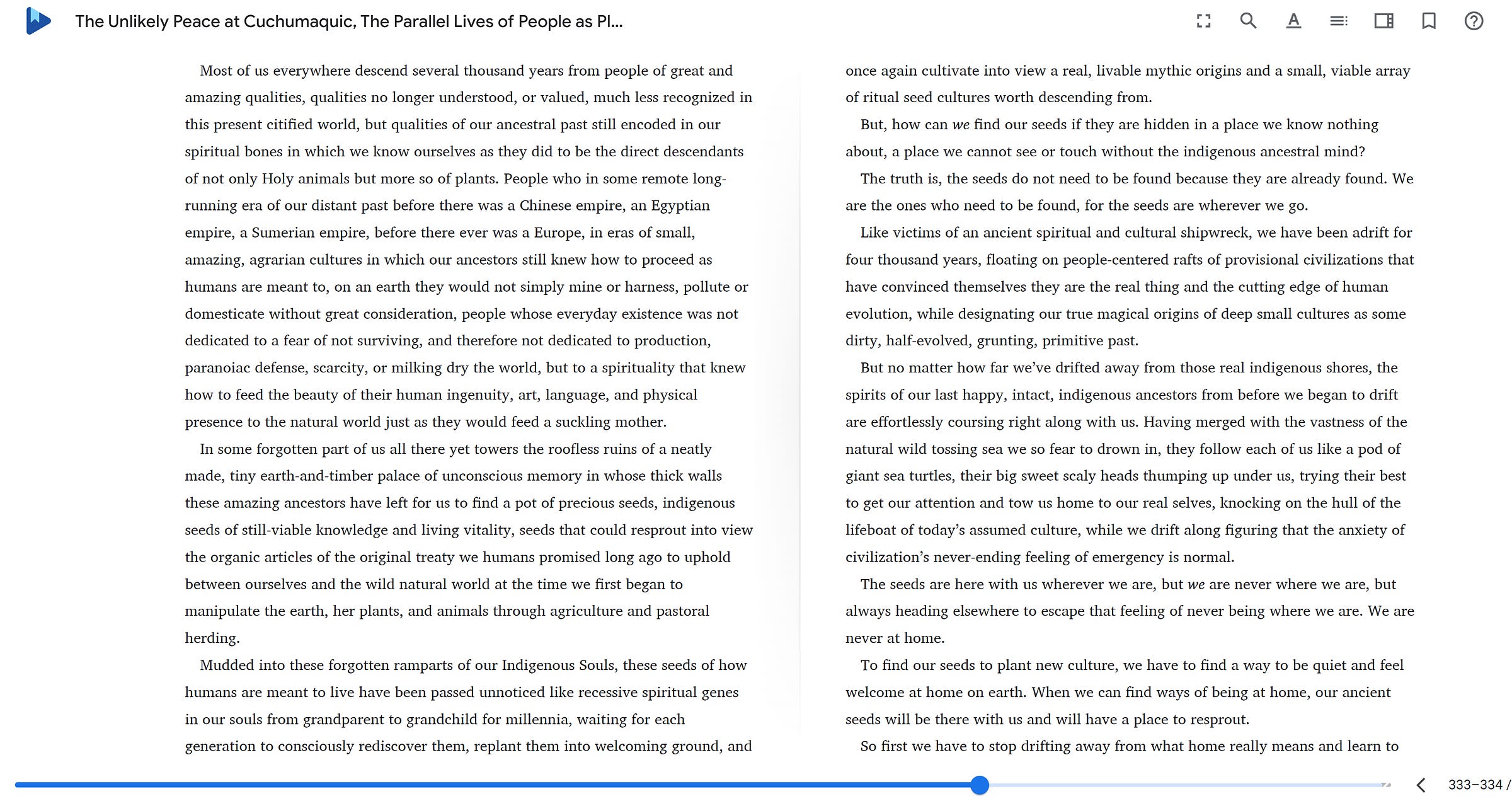
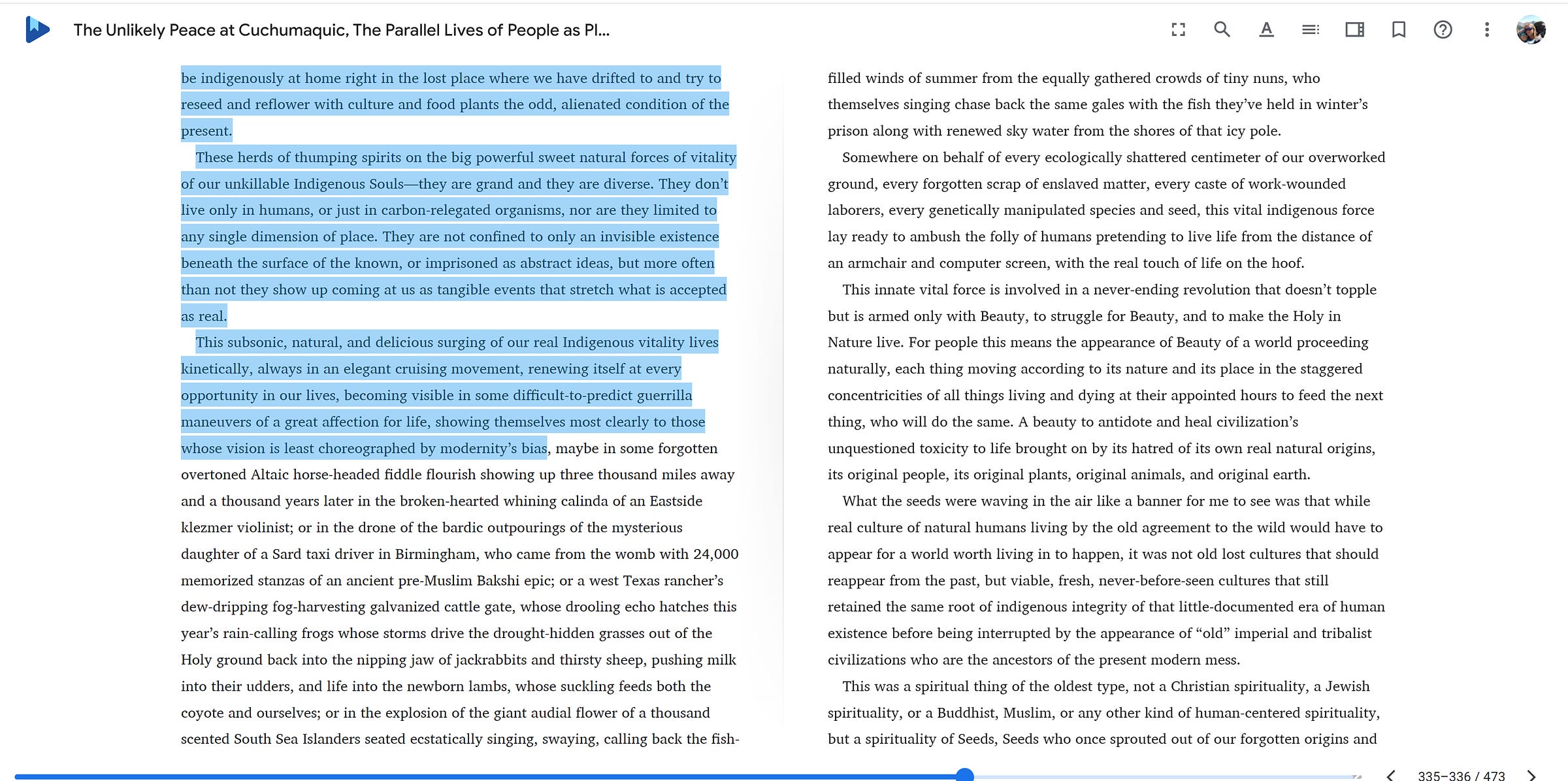
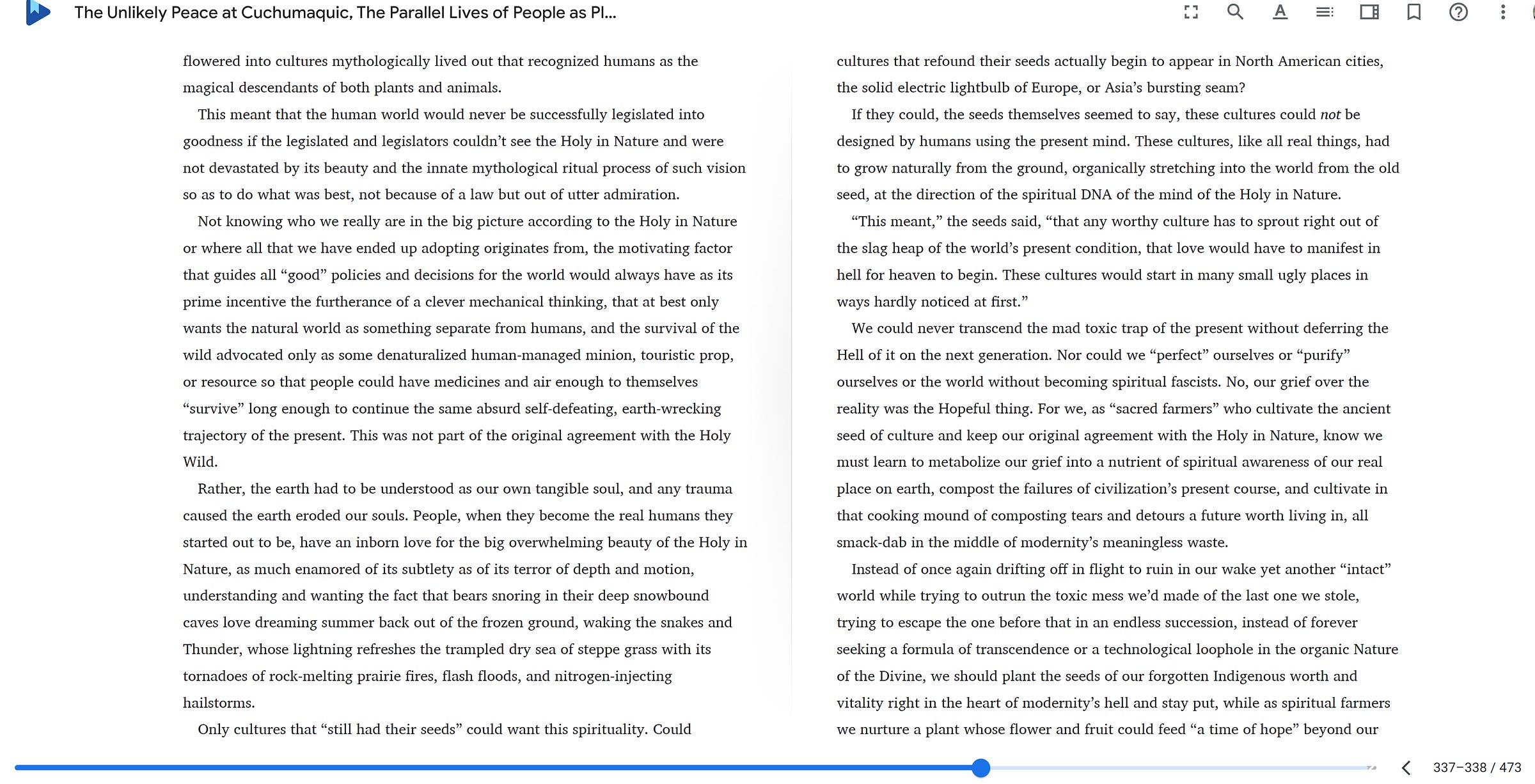
The Creator sent each and everyone of us here with gifts, seeds, acorns of the soul which we can tend to become mighty and magnificent.
Tend to relationships (whether plutonic or romantic) like they are a freshly hatched hawk fledgling, awkward , requiring gentleness and nourishing care yet capable of becoming strong, beautiful, elegant , resilient and resplendent beings able to make a sturdy home in the wild world and offer its unique gifts to enrich broader community.
Tend to the words you choose and use to express yourself as though they are a newborn Lynx cub, precious, sacred, beautiful and vulnerable yet capable of becoming fierce, graceful, courageous, loyal, self-sufficient and magnificent beings (when they are raised within the deep wilderness ecosystem that defines them and their illusive beauty, elegant grace, determined courage and magnificent agility).
Do not raise a baby hawk in a cage and hand feed it dead mice when it is starving … nourish, love and encourage her to spread her wings and soar high above the tree tops, free to take the risks and receive the stimulus that hone her resilience and allow her to manifest her highest potential
Do not put the precious lynx cub in a box and sell her to the zoo where she will love her life in a cage with other captured beings , stunted by living in a way that does not involve the ecological context that defines her beauty. Nourish, love and encourage her to find and hone her abilities in the ecological niche that gives her elusive grace meaning, purpose and allows her fierce courage and determined spirit to manifest her highest potential.
Do not plant the acorns of your soul in a little plastic pot in an artificial sterile substrate and attempt to grow them in the hydroponic greenhouse of modernity, roots stunted and never knowing the relationships to the beings in the ancient souls that birthed her kin. Do not allow institutions, economic pressure or trends/fads to influence you to stunt her roots and isolate her in the ecologically abbreviated and spiritually malnourished hydroponic greenhouse of a 300 character count social media post or a book that you are told should only focus on one isolated topic (so that it is more appealing to today’s market). Do not prune the branches of the oak tree so they can fit under the glass ceiling of character count limits and tiktoc video attention span preferences of the majority. Do not coppice the seeds of your soul.
Instead , nourish , love and tend to the acorns gifted to you by Creator by planting them in the rich living soils of the wilderness of your indigenous soul. Give that seed a home amongst her more ancient allies and predecessors, within an ecosystem of knowing and ways of seeing so that her roots may reach deep and wide, her branches reaching in unique ways, expressing sacred geometry and gently caressing the deep blue sky high above and her beauty fully expressed and perceived as she exists within the cultural, perceptual and reciprocal tapestry that allows her to unfold onto her highest Potential.
If we want to endeavor to initiate a regenerative ethnoecologically defined, universally applicable form of decentralized ethnogenesis we have to tend the same kind of gardens within our hearts and minds that we wish to see flourish in every yard, community food forest and lovingly tended wilderness place in the world around us. In order to plant the seeds for a new culture and way of living on the earth we must make our hearts, minds and the words/actions that emanate from them refugium for an ecosystem of endangered species of perspectives, spiritual ways of seeing , graceful ways of tending , forms of self-expression and linguistic tapestries so that those seeds can not only survive, but thrive and be capable of self sowing.
In doing so, we become Forest gardeners of ideas, companion planters of concepts, nurturing symbiotic relationships between words and perspectives , co-creating an ecosystem of linguistic interdependence.
In what Martin pretzel describes as “the monster of modernity” our form of English language and self expression degenerates into perpetual needless abbreviations, impatient surmised shortcuts , scrolling through endless contextless social media screenshots, emoji texts and 300 character count or twitter posts.
In the drive to expedite our means of expressing something to its most swift, condensed, summarized and/or sterile possible format we are like the colonial un-settlers arriving on the shores of Turtle Island with her lush biodiverse forest gardens, chopping the forests down , making them into walls to build around our homes to keep nature out and planting a fragile nutritionally depleted monoculture where abundant, complex and self-sustaining fold forests once resided.
Speaking about something we find beautiful , nourishing, empowering, truthful or Answering a question with isolated facts, or concepts (which are unnaturally segregated from the ecosystem of knowing, seeing and symbiosis that gave rise to that beautiful, nourishing, truthful thing or understanding) is taking a seed away from its ancient family of interdependence and reciprocity to grow it in a monoculture, forcing it to stay alive unnaturally with synthetic fertilizer and spraying it with glyphosate to ensure that no other seeds can survive along side of it. That isolated monoculture of ideas and facts is incapable of deeply nourishing the heart, the mind and the soul, of anything eating it it’s fruits may be harmful to all of the above. Such is the nature of the stagnant, hyper-specialized , over-abbreviated , linguistically sterile world of most western literature, university science and lab studies.
While the food forest of language that our ancient indigenous ancestors protected the seeds of may be long gone for many of us, we can still strive to engage in the polyculture cultivation of crops of ideas, truths and nourishing perspectives to yield the fruit that can feed the Holy which only an ecosystem made of symbiotic relationships can provide. Through tending with wilds of our indigenous souls in the way we speak we can gather the seeds from that sacred place of communion, carrying those seeds back through a portal in our hearts and allowing them to set down roots in our minds to begin to regenerate the ecosystem of knowing and self-expression that our ancestors knew and lived.
We are capable of Self expression, responding to queries and explaining facets of nature and spirit as though they are seed (originating within an ecosystem). We can speak in a way that elucidates the ecological niche of that idea, art form, fact, truth or perspective so that the one we are gifting that seed will be capable of tending to her needs in a way that allow her to blossom into her fullest potential, nurturing the Holy, the tender of the garden and providing more seeds unique to the soils/souls they were cultivated in to share with future generations.
Through providing the threads of reciprocity that weave their way through a functioning ecosystem in our language and linguistic form, companion planting truths and knowings that love and support one another, we give the our burgeoning cultural seeds the best chance at thriving (even amidst the cold winter winds of the perpetual “progress” of modernity).
The seeds within us are unable to come to realize their fullest and most nourishing potential without having developed relationships with other supporting and symbiotic ideas, truths and understandings.
Through tending to our use of language as we tend to the ecosystems that support us, saving seeds from our indigenous ancestor’s gardens of wisdom and finding ways to cultivate those seeds in the soils of modernity, we become regenerators of hope, cultivators of beauty and faith, stewards of abundance and ancestors worth descending from.
Through our recognition of the immense wisdom embodied in something as seemingly simple as a leaf or recognizing how the tree that produced the leaf is involved in myriad symbiotic relationships that might teach us how to behave more honorably, efficiently and regeneratively as humans, we begin to be able to discern the beauty and majesty that is all around us, we begin to become capable of reading the blueprints of Creator and feeding the Holy in Nature that God imbued her with.
We can engage in this sacred process in the garden, in the forest and in our dealings with both human and non-human beings within “civilization”.
We are now called to look within to find these seeds and then merge them with a handful of physical seeds outwardly so that we can consciously initiate regenerative ethnoecologcally defined ethnogenesis through our actions in on this beautiful Earth, creating pockets of emergent placed based culture all over the planet and using our unique gifts to become the medicine that both the Earth and our human family needs so desperately.
In order to see a new culture and way of living take hold and begin to become the norm we must cut our ties to the old ways and begin to live a new way. We must remember what our ancestors were wise enough to understand and forge a close knit relationship with the land we live on. The interdependence, sacred geometry, efficiency, resilience and regenerative capacity of the intact ecosystems where we live can provide us guidance on the path forward. Through emulating these living systems in the garden/farming sector and engaging in biomimicry with our technology we can create resilient systems and ways of perceiving that can provide us food, medicine and wisdom on our path to create a brighter future. And it can begin with something as simple as humility and a handful of seeds.
We can choose to be the living embodiment of truth, agents of the regenerative capacity of Mother Earth and the antidote that helps to expel the tentacles of the corporate parasites in each of our communities.
We can plant the seeds for abundance, health and hope. We can plant these seeds with our words, our hands and our hearts. We can do this one regenerative garden and one regenerative community at a time.
Now is the time to reaffirm our alliances with the living Earth, to nurture new symbiotic relationships with the soil, people, plants and fungi in our local communities. Human empires rise and fall, and history teaches us that when they fall, it is those that know how to grow/forage for their own food, medicine and preserve it that survived. I will be focusing on these efforts locally and helping those at a distance to do the same.
We can create Oases of health, resilience, and abundance in each of our communities.. we can become the solution, break from dependence on centralized systems and help others to do the same. It begins with the soil and the seeds and it evolves into nurturing symbiotic connections with those we share our communities with.
It is time to move past the era of followers and leaders, peasants and princes, worshipers and saviors, haves and have-nots, minions and tyrants, corporations and consumers and usher in the age of self governed, self reliant, creative, resilient and symbiotically connected human beings which collaborate of their own free will to leave this world a little more beautiful than it was before for the next 7 generations that will follow.
There is no elected official, institution, politician, guru, priest, revolutionary, savior or any other external force or individual who can do this for you. Engaging in life on Earth is a voluntary journey that each of us chose willingly. The Creator of all things respects our choice to be here and our free will. We did not come here to see a dramatic dualistic showdown happen and applaud the ‘good guy’ for vanquishing the bad guy (from a distance as a spectator). No, each and every one of us (whether we are currently consciously aware of this fact or not) came here to co-author the story. That means no-one else is going to do the hard work for us (not a savior, rebel leader nor a politician) we came here to do that work of transforming this world ourselves.
If you are reading this than that means that on a soul level you chose to be here on Earth in this particular time (and critical stage in the unfolding of humanity) because you are resilient, courageous, capable of transmuting pain into wisdom, radiating light from within to make the darkness flee and serving as an exemplar to help those who are ready to also become catalysts for a metamorphosis and ethnogenesis.
You are the sowers of the seeds of change and the remediators of humanity’s collective consciousness. You are the gardeners that sow the seeds of hope, healing, remembrance, kindness, respect, solidarity and compassion (even in the midst of the cold winter winds) having faith these seeds will germinate and their roots take hold when the time is right.
You are not alone, your tribe came here in great numbers at this time. Go forth now and find the others, it is time to embody the template for that which will be and cut our ties to that which was.
We are the ones we have been waiting for.
Two resources that I feel can be helpful tools for those interested in becoming part of a conscious (non-genetically limited) ethnogenesis process:
Saving Seeds to Save The Future
The act of saving seed from your heirloom garden crops is an act of love and hope for tomorrow. Not only does this act save one money and ensure food security for one’s household (and local community) but, it also offers one the unique sense of satisfaction that comes from the knowing that each successive year seeds are saved the varieties of seeds are …
Regenerative Gardening Seed/Seedling/Tree Sources 2024
Hello everyone! It is seed starting and garden planning season for us in the temperate regions of the northern hemisphere so I have compiled a list of what I consider to be trustworthy heirloom seed companies and nurseries for those looking to start, expand or diversify an existing garden this year.
Please also support the authors that I quoted above if you can by purchasing their books (you will not be disappointed) and also support pioneering small businesses such as the good people over at Genuine Nova Scotia Oatcakes who are helping plant the seeds for a peaceful revolution of the mind and ethnogenesis/metamorphosis of the spirit through sharing the powerful messages they do on the packages of their tasty and nutritious oat cakes (such as the message in the pic below).
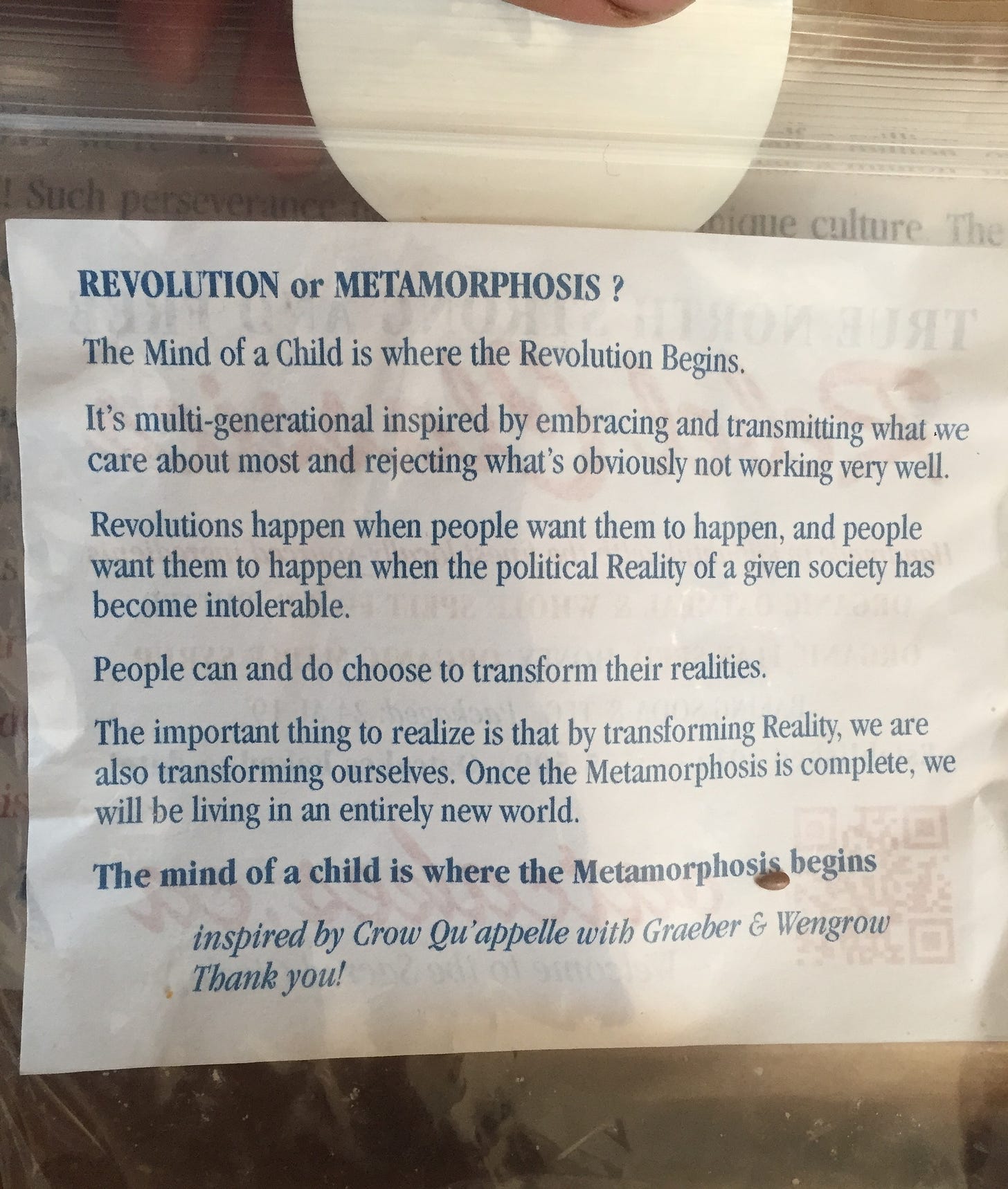
And in closing, one more quote from Martín Prechtel and some poetry from Lyla June:
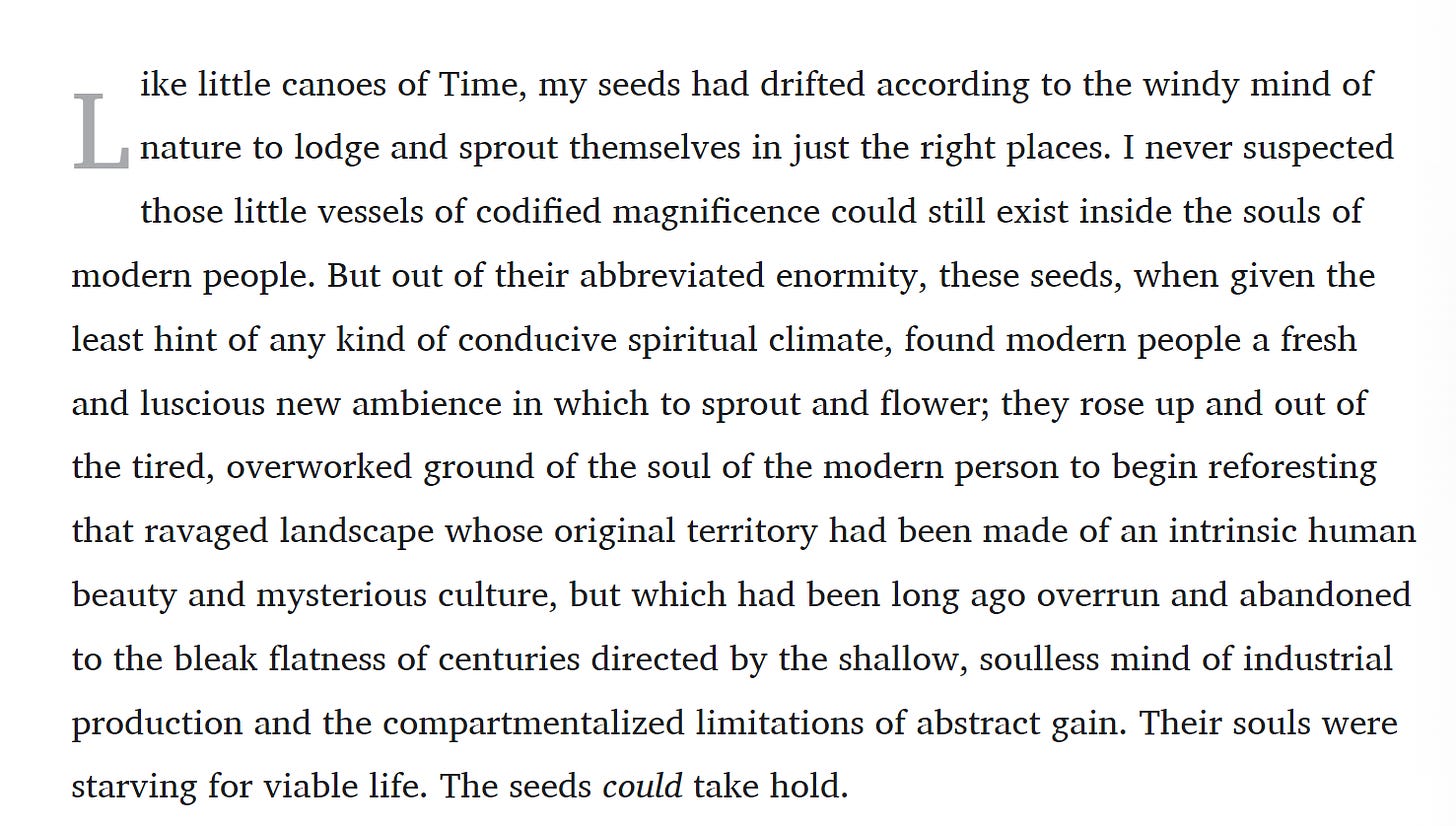



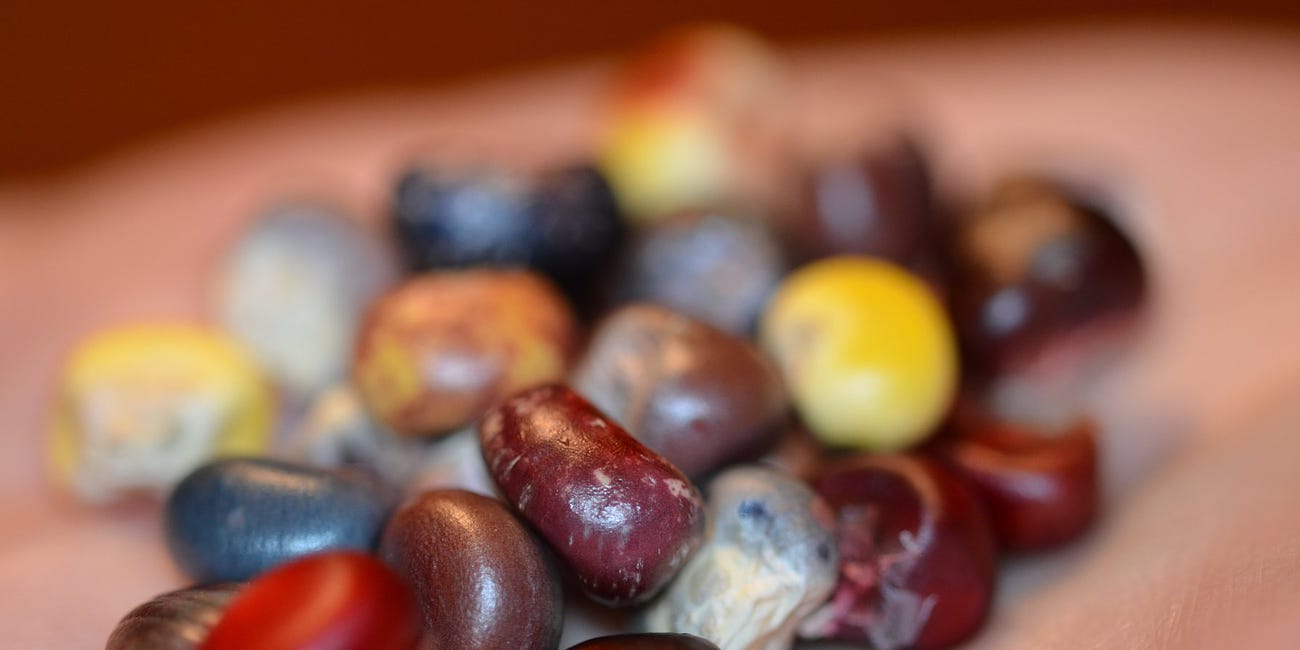
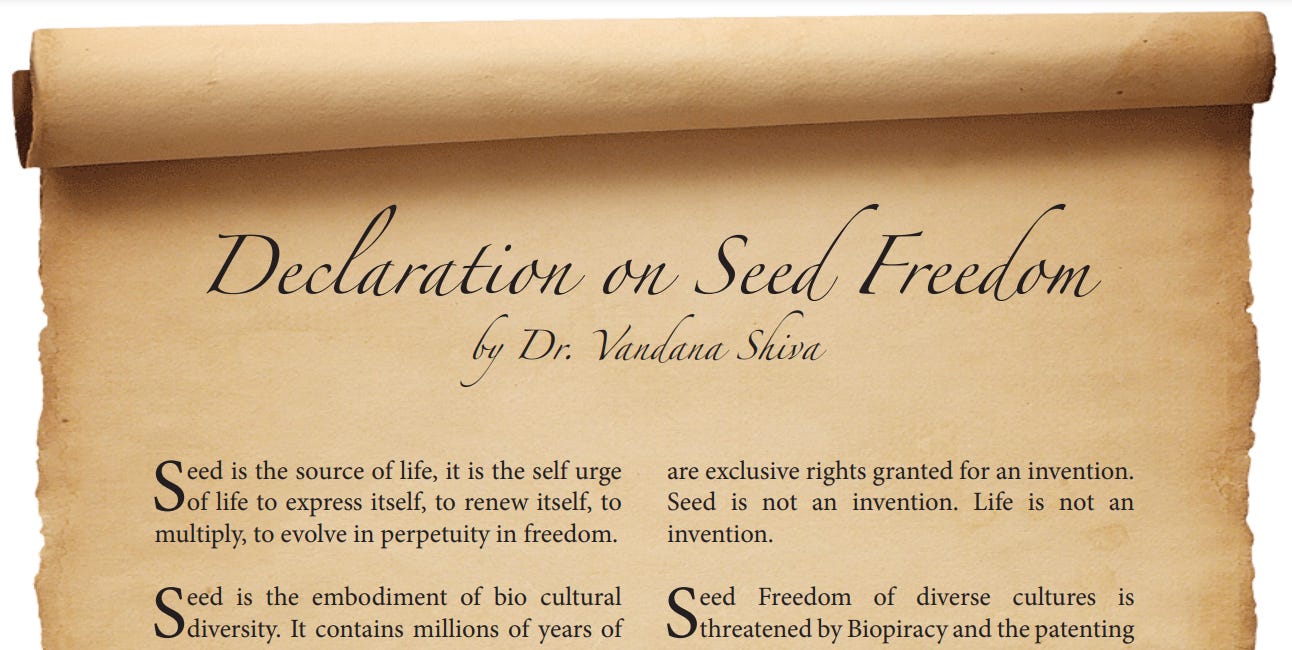
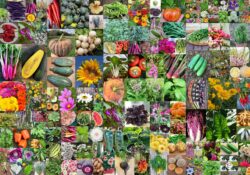
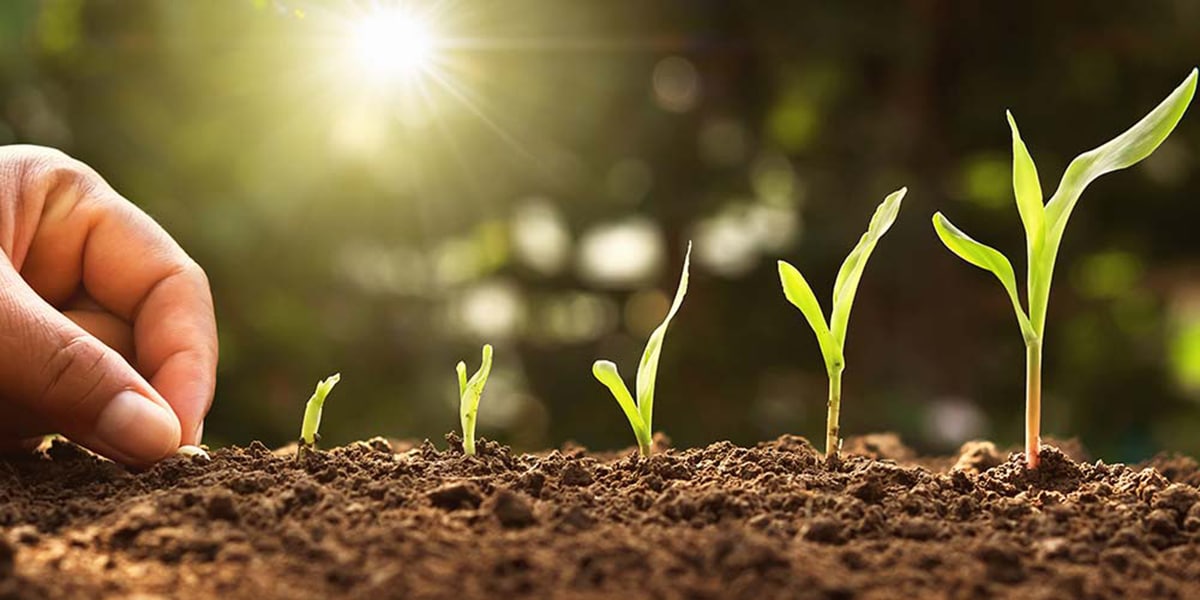
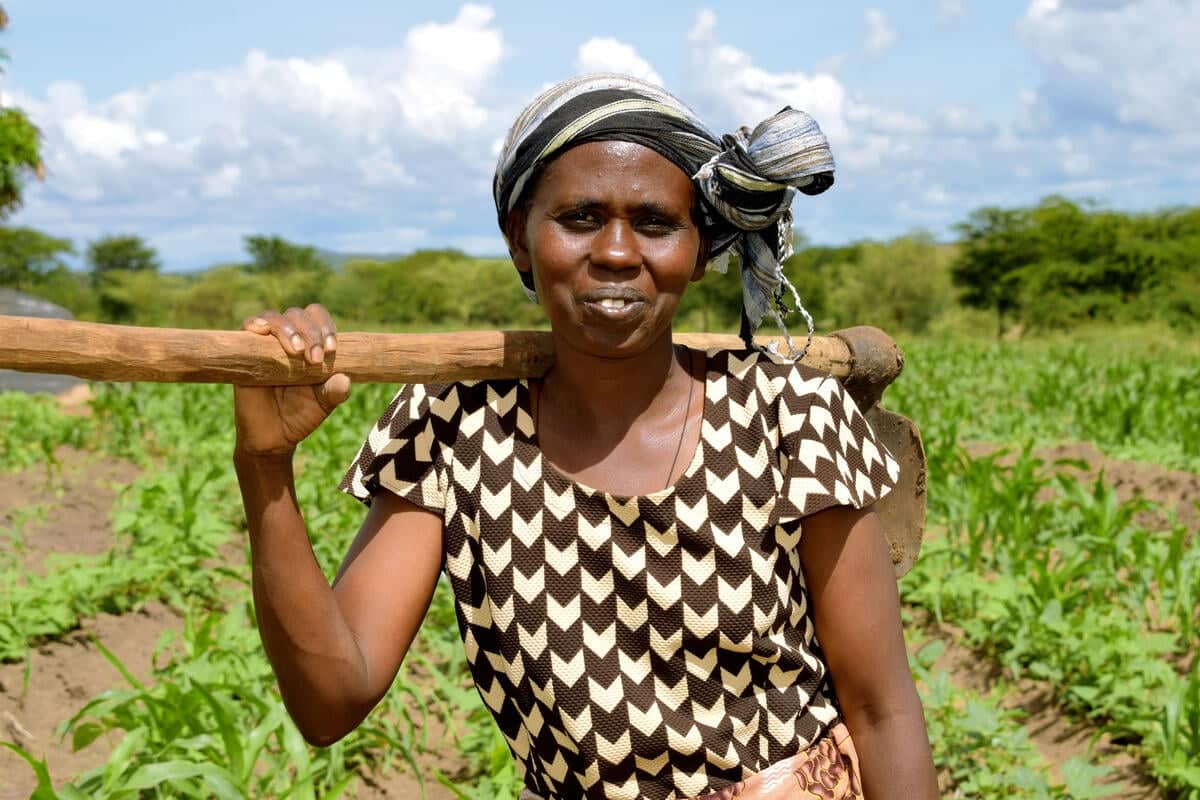
0 Comments